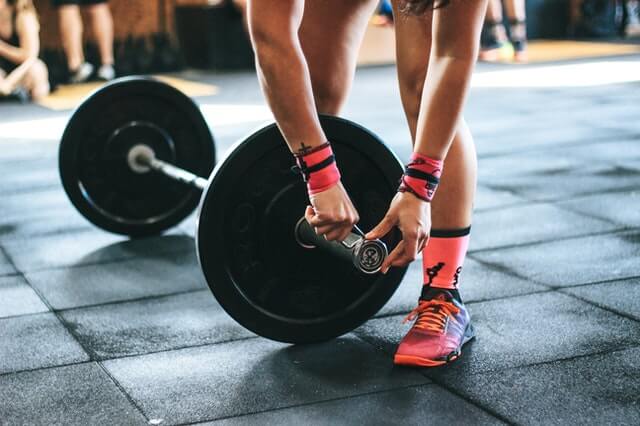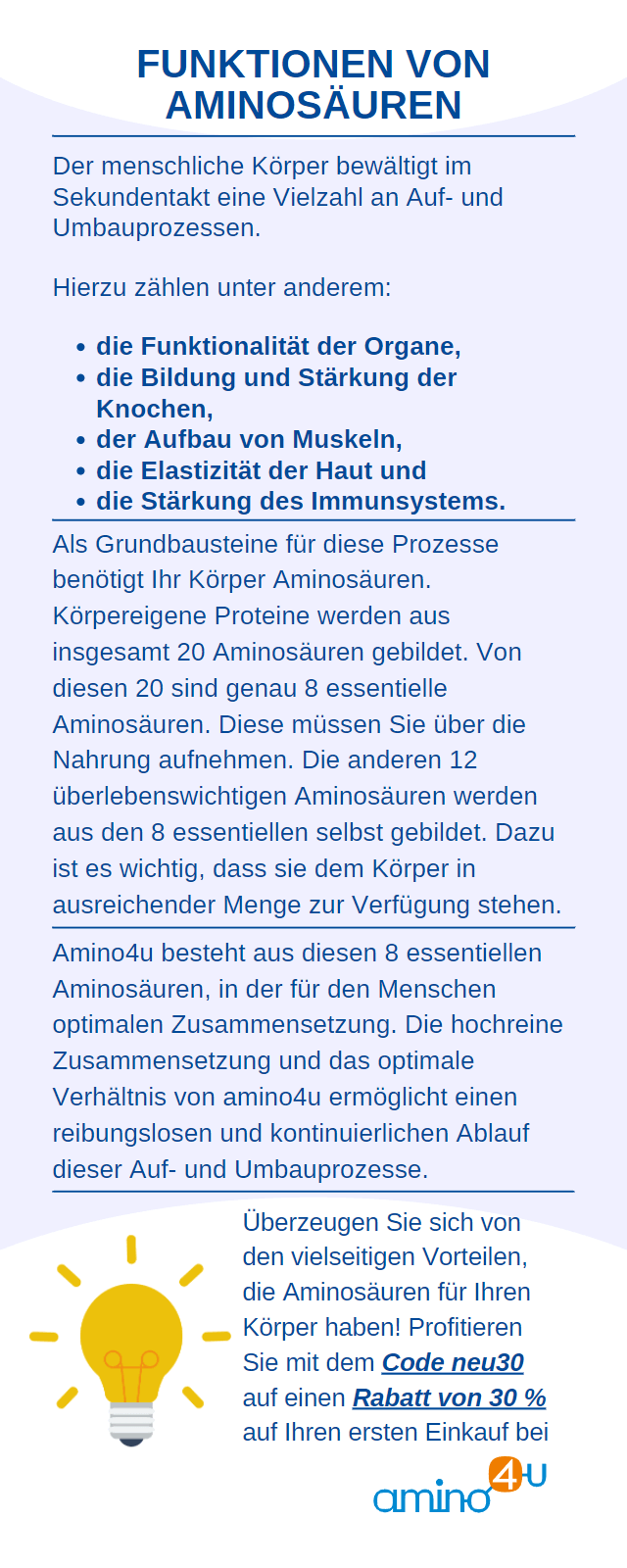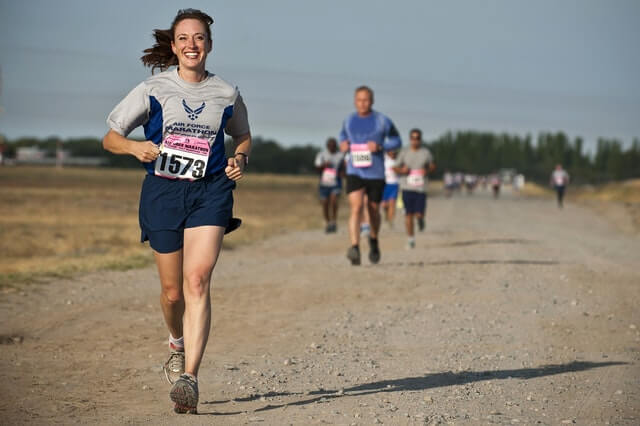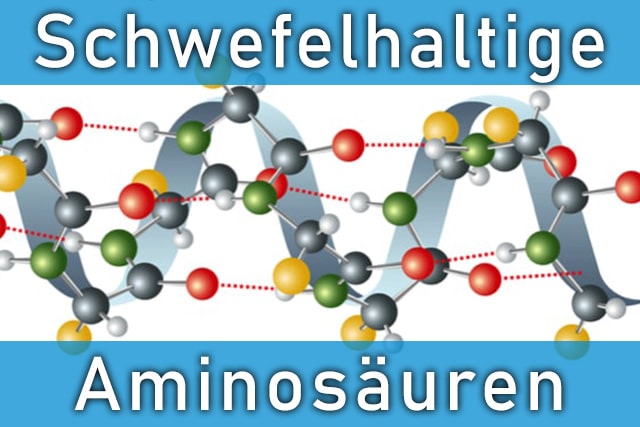This situation is probably familiar to many amateur athletes. You plan a morning workout for the next day. Relaxed running training is on the program. How about the food? Would you like to have breakfast beforehand or not? Questions also arise again and again when it comes to eating before strength training. Is it better to eat before or after exercise to achieve good performance? Our metabolism provides the answers.
We took a closer look at it.

Metabolism, training and nutrition
Food gives us energy and must provide us with all the essential nutrients. When we exercise , we use more energy than when we rest. If we only followed this very simple approach, we would definitely have to eat breakfast before running training so that our body has enough energy.
Before strength training, food intake would be even more important because it also affects our muscles. In fact, the various metabolic functions are very complex areas. That's why the question of the right sports nutrition is not easy to answer.
Above all, the different nutrient classes such as carbohydrates, protein and fat have very different areas of responsibility - especially in connection with physical activity.
The importance of carbohydrates
When it comes to quickly and easily providing energy to the human organism during physical activity, sugar (carbohydrates) is indispensable. Carbohydrates are particularly easily converted into physical energy.
This happens by breaking down sugar in a process called glycolysis. It is therefore not surprising that marathon runners in particular swear by their pasta and other carbohydrates.
Our organism stores carbohydrates in the cells of various organs such as the liver. One third of these so-called glycogen stores are located in the liver and two thirds in the muscles.
With normal physical exertion, glycogen stores usually last for a whole day. During intensive use, they can be emptied after just 90 minutes. Energy for the human organism is provided by the cells' energy source adenosine triphosphate (ATP).
Energy is formed with oxygen via the glycogen stores, which is why it is also referred to as aerobic glycolysis.

Energy from fat for training
If you look at sporting activity primarily from the energy aspect, particularly long and particularly intensive exercise are ruled out. A marathon runner will work to conserve his glycogen stores for as long as possible in order to be able to achieve long endurance performance.
Things can look different for strength athletes . Our organism can supply itself with energy in another way. If glycogen stores are depleted, energy can be produced from fat in a very complex way.
This form of energy production occurs without oxygen, so it is called anaerobic glycolysis. This type of energy production produces lactate (lactic acid), which has to go through a further conversion process in order to be available as an energy source.
It is important that our body only uses fat metabolism and the special form of energy production from fat when the glycogen stores have been emptied.
Different effects desired
We pursue very different goals with sport. A marathon runner wants to achieve consistent endurance performance over a longer period of time. A strength athlete strives for intense performance in a short period of time.
For amateur athletes in particular, it's not just about the sporting performance itself. Losing weight is often an issue here. That's why when we do sports, we also have to be aware that we want to address very different metabolic activities.
If we want to reduce our body weight, we have to attack the fat deposits. This means we have to get energy through fat metabolism so that the body can use more fat .

Protein and its functions in sports
Protein has another very special task in our body. The smallest building blocks of protein, the amino acids, in their proteinogenic form form the building materials of all body tissue. Our muscles in particular therefore rely on an adequate supply of protein if they are to grow .
In addition , protein and protein building blocks have many other tasks in the human organism. There is hardly a group of substances that is subject to such high levels of conversion processes as protein.
In particular, the protein building blocks that we do not form in our bodies are the basis of many other substances. This is why they are also referred to as essential amino acids . When it comes to our energy supply, protein is also so important because our muscles determine our energy consumption at rest.
If we strive to build more muscle , we also pay particular attention to our food intake after physical activity.
Eat before or after exercise? The Potential Benefits of “ Fasted Training ”
As we have already seen, with sports activities we can achieve different goals from before. Depending on the objective, we would also like to address different metabolic activities . If we want to lose weight, we have to ensure that our fat deposits are used more often to generate energy.
Particularly in this context, fasting training together with endurance sports has proven to be particularly effective. Various scientific studies have been able to establish a connection between fasting training and insulin metabolism.
Accordingly, training on an empty stomach could have a partially positive effect on reducing body weight.
Above all, weight gain could be prevented if health athletes trained their endurance on an empty stomach - especially in the morning without breakfast.
For amateur athletes and competitive athletes with a specific training goal in terms of athletic performance, fasting training can have a detrimental effect. Empty glycogen stores mean that the desired sporting performance may not be available.

Eat before or after exercise?
When it comes to food intake after exercise, the proteins mentioned are particularly important. In addition, particularly performance-oriented endurance athletes will have to ensure that their glycogen stores are replenished by consuming carbohydrates.
The lower body basically relies on all three nutrient groups: carbohydrates, fat and protein. The components can sometimes be weighted differently. It should be noted that excess carbohydrates are stored as fat.
If the glycogen stores in the liver and muscles are full, our organism has no choice but to select fat depots from the carbohydrates. Insulin also plays an important role in this cycle of metabolic processes.
It plays a key role in the metabolism of sugar. If the sensitivity of insulin release via the pancreas decreases, carbohydrates may no longer be metabolized appropriately. This can lead to increased storage of carbohydrates as fat.
Maintain balance during training
Since the metabolic processes in our body are so complex, it is important for our energy supply that we absorb all the essential nutrients. This doesn't just apply to sports nutrition .
In particular, our brain also depends on an adequate supply of sugar. It therefore makes little sense and is sometimes even dangerous to health to avoid a nutrient group completely. Here we risk the supply of essential nutrients. Athletes in particular must ensure that there is sufficient balance in their diet.
Energy is needed for athletic performance
When we exercise, we may want to lose weight and gain muscle , increase our endurance , or perform certain athletic feats.
Our training is always related to building muscles in one form or another, but we absolutely need amino acids as a building material .
But we also need enough energy to carry out any sporting activity and to be efficient. From this point of view, it is important, for example, to pay enough attention to eating before strength training .
Strength training is an intensive, rather short-term effort. To achieve this performance, we need more energy than in the original state. The glycogen stores make this energy quickly and sufficiently available to our body.
On the other hand, this means that you can also eat some carbohydrates before strength training. This applies even more to endurance athletes such as marathon runners. You need full glycogen stores in order to be able to achieve adequate endurance performance .

Fasting training is only recommended for a few cases
Given the above-mentioned aspects, fasted training is only recommended for a certain group of physically active people. This is about the health athlete who wants to lose weight or not gain more body weight.
However, this statement, which now deals with body weight, is not entirely clear either. If you were to express yourself more precisely, you would have to say that it's about health athletes who want to lose fat.
Muscles will also affect body weight. Want to lose more excess weight and therefore also strive to build muscle. Where there is muscle, there is no fat. In addition , energy expenditure increases at rest when there is more muscle .
Eat before or after exercise? - Conclusion
Similar to the topic of training despite sore muscles, there can be no general recommendation for food intake before or after exercise.
Here it depends on the individual circumstances and also on the sporting goals. For most athletes, it will be important to have full glycogen stores in order to obtain adequate energy for athletic performance.
However, full glycogen stores indicate an appropriate intake of carbohydrates even before sporting activity. Food intake should not take place immediately before training sessions , but rather in a period of around 1-2 hours beforehand.
The amount and type of food intake must also be tailored to individual needs. Fasting training can be interesting in alternation with other training sessions when it comes to reducing fat deposits and, above all, preventing further fat deposits in the body.
Fasting training has a positive effect on insulin metabolism. Eating after exercise is aimed at consuming sufficient protein as a building material for the muscles and at replenishing glycogen stores by consuming carbohydrates.
Eating before or after exercise ? In principle, both, but well thought out and balanced. Fasting training can be added from time to time.




